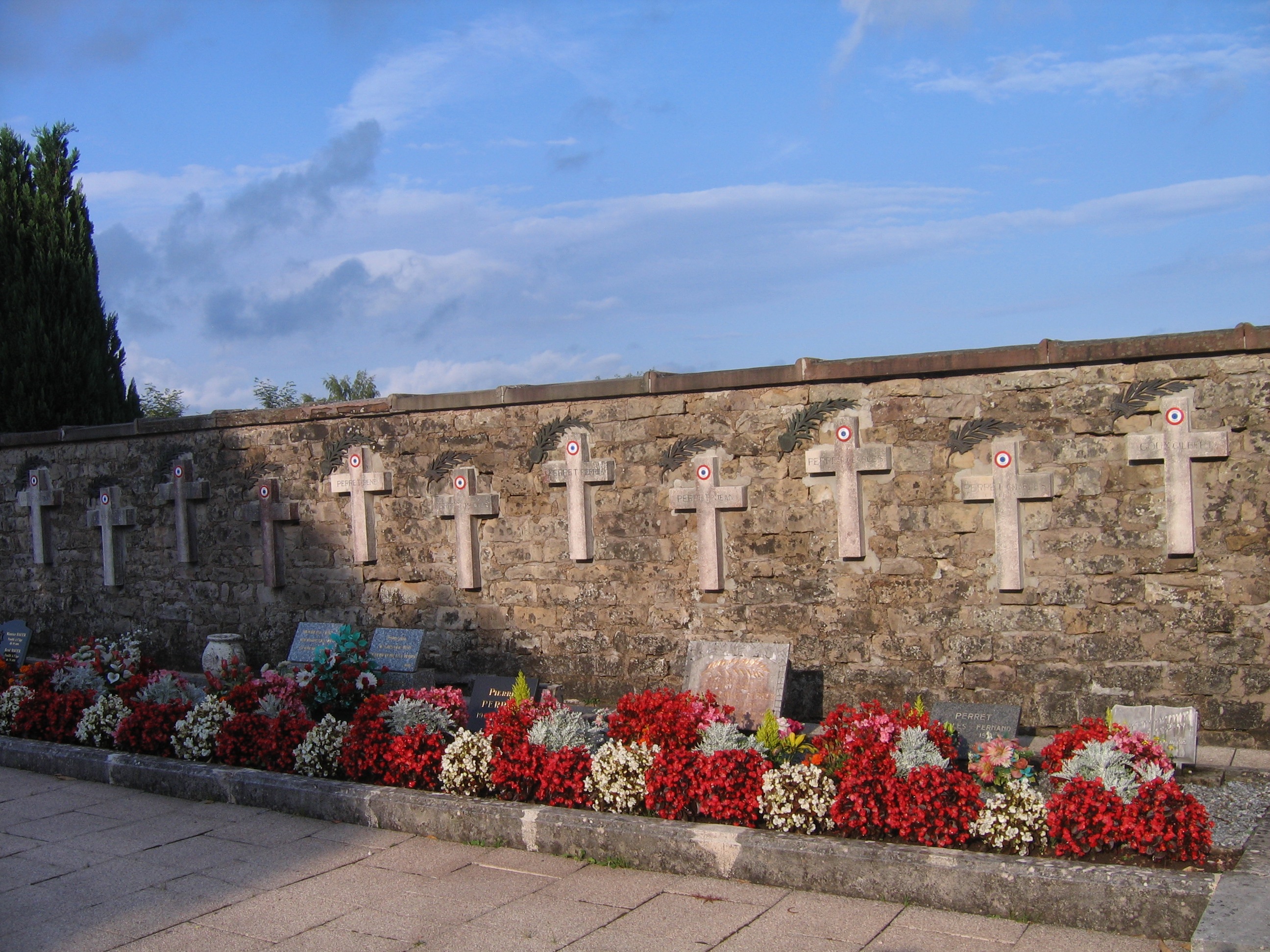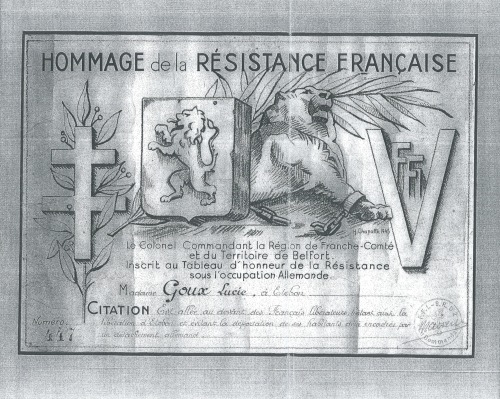No One from Etobon Dared to Complain ...
German and Cossack troops were preparing to retreat from Etobon towards the Rhine River. Insubordination and desertions were becoming even more of a problem, putting the Etobonais at continued risk.
Saturday, November 4
The Cossacks are leaving the village. Thinking of the future, they ask me for a certificate of good conduct! It was pretty delicate to edit. Finally, “During the period October 24 to November 4, 1944, no one from Etobon dared to complain to me about the Cossacks of the 15.201F stationed in this village. Etobon, November 4, 1944. For the executed mayor, J. Perret.”
I did not seal it. I told them the mayor had the seal in his pocket when they killed him. Mama roasted two chickens, one for us, one for Jarko, the hermit of the pines, who is finding the time really long. Coming back from taking him his chicken, I met Mario, from Frahier, who had just repaired the electric line. He says the Germans had evacuated Frahier all of a sudden to go as reinforcements in the Vosges, and that we’ll soon be liberated. (Mario was killed a few days later by a shell.)
Here, our boches act like they’ll be staying forever. They’re building an oven to cook lice in the cellar of the girls school, and to get bricks for it, they demolished the scale house. An Austrian adjutant, a good guy, is doing the work. He’s strong as an ox. He says to me, “Can’t do any good. Don’t know if the stove is good, it’s for the Americans. He works with one hand, because the other one’s in a sling, after he gave it a good hammer blow.
Monday, November 6
Saturday, the big boche George brought a cow, picked up who knows where, into our stable. A while later I heard him shout, “Papa, Papa, cow!” She was calving! Ten minutes later, “Papa, Papa, oh, cow! Oh, cow!” She calved again. I didn’t want to get involved. Let him deal with it. He dealt with it very well. Without hesitating, he put the two calves to suckle.
Tuesday, November 7
The rain just won’t stop. Georges, soaked to the skin, comes back from the front, which he’s supplying, with a second cow!
Life has changed since we’ve gotten electricity back. The Doktor just burst into our kitchen without giving an explanation. Maybe to see if we were listening to the radio. None of our boches got up to salute him. He grabbed one by the nose, saying, “Is this what you do when an officer enters?”
This evening, a terrible storm, the wind so violent that we couldn’t hear 18 shells exploding. For two days now, the Germans have not responded. Karl is writing, Willy is playing with Philippe, Georges speaks his joy at having bought a wagon for 6000 francs, Suzette reads, Mama knits and I note the happenings of the day.
Wednesday, November 8
Rain, rain … At the forge, two boches demand tin solder. I’ve hidden it. They search everywhere. I get mad. So, one of the two, who speaks French more or less: “Ah! You’re getting angry! Look what I found. Enough to put you in prison!” And he showed me some machine gun sights, abandoned by the Polish in 1940, that they then take to the Tyrolian adjutant at the louse oven. I went to see this adjutant. “Do not worry at all.”
Willy told us today that a shell had killed ten of their men in a shelter.

 Katherine Douglass
Katherine Douglass